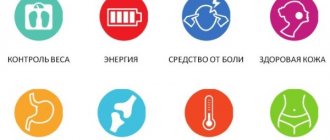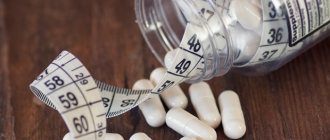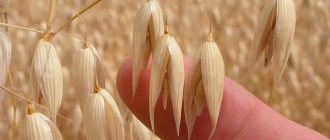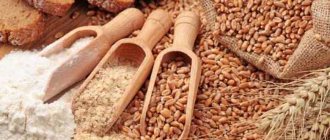Content
- 1 Caffeine 1.1 Effects of caffeine
- 1.2 Mechanism of action of caffeine
- 3.1 Trained athletes perform better
- 4.1 More on caffeine
- 6.1 Caffeine in sports nutrition
- 7.1 About the dangers of drinking coffee
Caffeine[edit | edit code]
| What is caffeine | |
| Caffeine is classified as a pharmaceutical compound (medicine) rather than a nutrient, but caffeine is often considered a dietary supplement because it is found in many everyday foods, such as coffee, black and green tea, colas, chocolate, some energy drinks, sports drinks and energy gels. However, the caffeine content of coffee can vary greatly depending on the method of preparation. | |
| Effect of caffeine | |
| Caffeine acts on the central nervous system to increase alertness and concentration, which can be an advantage in many sports. It stimulates the release of adrenaline, which increases the level of fatty acids in the blood. During exercise, muscles are able to use additional fatty acids as an energy source, which saves valuable glycogen. This means doing work longer without feeling tired. Caffeine may also improve muscle contraction by releasing calcium from its stores in muscle cells. There is a wealth of research showing that caffeine improves performance in endurance activities. However, the benefit for short-term, high-intensity activities such as sprinting is less clear (about half of the studies indicate improved performance; the other half indicate no improvement). An analysis of 40 caffeine studies conducted by scientists at the University of Luton, United Kingdom, found that caffeine can improve endurance performance by about 12%. Another study of swimmers showed a 23-second improvement in a 21-minute swim. Scientists from the Royal Melbourne Institute of Technology, Australia, found that caffeine improved performance by 4-6 seconds in elite rowers during the 2000m row. | |
| Do you need it? | |
| Drinking two cups of coffee or a caffeinated energy drink about an hour before exercise can stimulate your muscles to burn fat and thus help you maintain your workout for longer. In 2002, Canadian researchers found that drinking more than two cups of coffee did not have any additional effect. Australian scientists found that 1.5 mg/kg (105 mg for a 70 kg athlete) taken in divided doses (i.e. 4 caffeine-containing energy gels over 2 hours) during intense training improved performance in professional athletes. To get the most benefit from coffee, drink it without or only with a small amount of (low-fat) milk, since milk slows the absorption of caffeine. | |
| Side effects | |
| Some people are susceptible to side effects, others are not. Side effects include restlessness, tremors, and insomnia. Caffeine also increases your heart rate and breathing rate. If you are sensitive to caffeine, it is best to avoid it. Scientific research does not support a link between long-term caffeine use and health problems such as hypertension and decreased bone mineral density. The link between elevated cholesterol levels and heavy coffee consumption is now known to be caused by the content of certain fats in coffee, which are more pronounced in boiled coffee than in instant or filtered coffee. Although caffeine is a diuretic, when consumed less than 300 mg per day, it does not promote urine output any more than water. In these amounts, caffeine is considered safe and is unlikely to cause any adverse effects on performance or health. With regular caffeine intake (that is, coffee consumption), tolerance to caffeine is developed, that is, the diuretic effect is reduced. |
Caffeine
- an alkaloid, a stimulant of the central nervous system, with a wide range of other physiological effects, belongs to the group of methylxanthines found in plants such as coffee, tea (caffeine extracted from tea is often called
theine
), mate (caffeine extracted from it is sometimes called
matein
), guarana, cola, and many others.
For pharmacological purposes, it is produced synthetically and extracted from plants. Contained in energy drinks, often found in sports nutrition, in almost all fat burners, and many pre-workout complexes.
Yuzhakov Anton Kofein
10 facts about caffeine
Effects of caffeine[edit | edit code]
Most studies on caffeine have focused exclusively on endurance sports. Their main conclusion is that for most of these athletes, caffeine helps them achieve better athletic performance. There are three versions explaining this reaction. The first of these was initially considered the most plausible and is associated with caffeine’s ability to stimulate fat burning to produce energy. Caffeine promotes the production of adrenaline, a hormone that accelerates the release of fatty acids into the blood and is a central nervous system stimulant. During initial physical activity, muscles use fatty acids available for energy production, keeping muscle glycogen reserves intact. Individual scientific studies have confirmed this theory.
The second theory is that caffeine can directly affect skeletal muscle by changing key enzymes or systems that regulate the breakdown of carbohydrates within cells. But the study of this theory did not reveal clear results and was not completed.
The third theory may actually be key to understanding how caffeine makes you feel like you've done less work than you actually do. According to this theory, this is because caffeine, through its direct effects on the central nervous system, can provide a psychological effect by making athletes feel like they are not working as hard or somehow maximizing the force of muscle contractions. We now know that caffeine does not cross the blood-brain barrier and interfere with the action of adenosine, a neurotransmitter that causes drowsiness by slowing the activity of nerve cells. Caffeine is structurally similar to adenosine and can bind to adenosine receptors on brain cells. But caffeine does not have the same effect as adenosine; it does not slow down the activity of nerve cells. Instead, it stimulates the production of adrenaline, a hormone that makes you feel better during exercise. Currently, this is the prevailing version, most confirmed by scientific research.
Scientists from the Institute for Scientific Information on Coffee (ISIC) have concluded that drinking three to five cups of coffee a day prevents the formation of beta-amyloid plaques in the brain, which are associated with the progression of Alzheimer's disease and dementia. It has been found that memory and cognitive function are positively affected by two main ingredients in coffee - caffeine and polyphenols, which together help reduce inflammation and stop the destruction of brain cells, especially in the areas of the cortex and hippocampus.[1] Another study[2] noted that coffee drinkers live longer.
Scientists from the USA have found [3] that caffeine can block changes in the brain associated with cocaine addiction. However, the studies were conducted in rats, so confirmation of the positive result is required in other experimental models.
At the end of 2020, a study[4] by American scientists was published in the journal Nutrigenet and Nutrigenomics on the positive effect of coffee consumption on reducing the risk of developing breast cancer in women with a mutation in the brca1 gene.
Researchers at Stanford University School of Medicine[5] have found that caffeine, as well as caffeine metabolites, such as theophylline, which is part of tea, and theobromine, which is found in chocolate, help avoid systemic inflammation, heart disease and blood vessels.
There are also studies that after physical training of rugby players, testosterone in the placebo group was higher by 15% on average, in the caffeine group by 21% (+/-24%)[6]
Mechanism of action of caffeine[edit | edit code]
According to modern data, a significant role in the mechanism of action of caffeine is played by its inhibitory effect on the enzyme phosphodiesterase, which leads to the intracellular accumulation of cyclic adenosine monophosphate (AMP). Cyclic AMP is considered as a mediator substance (secondary mediator), with the help of which the physiological effects of various biogenic medicinal substances are carried out. Under the influence of cyclic AMP, glycogenolysis processes are enhanced, metabolic processes are stimulated in various organs and tissues, including muscle tissue and the central nervous system. It is believed that caffeine stimulation of gastric secretion is also associated with an increase in the content of cyclic AMP in the gastric mucosa.
In the neurochemical mechanism of the stimulating effect of caffeine, an important role is played by its ability to bind to specific (“purine” or adenosine) brain receptors, the endogenous ligand for which is the purine nucleoside, adenosine. The structural similarity of the caffeine and adenosine molecules contributes to this. Since adenosine is considered a factor that reduces excitation processes in the brain, replacing it with caffeine leads to a stimulating effect. With prolonged use of caffeine, new adenosine receptors may form in brain cells and the effect of caffeine gradually decreases. However, with a sudden cessation of caffeine administration, adenosine occupies all available receptors, which can lead to increased inhibition with symptoms of fatigue, drowsiness, depression, etc. [7]
How to Use Caffeine to Improve Athletic Performance
Caffeine is a legal, inexpensive, and readily available stimulant. But the main thing is that it can help you achieve athletic results even faster than many special supplements. You just need to know how to use it correctly.
What is caffeine
Caffeine is a multifunctional substance that affects many body systems. But his strong point is maintaining brain function. By blocking adenosine, a molecule responsible for signaling the need for rest, caffeine allows us to work longer without feeling tired. Including in the gym.
Caffeine can seriously help during endurance training (triathlons, marathons, cycling races). Experiments have shown that athletes on caffeine perform an average of 3% faster times (up to 17% in some cases).
What does 3% mean for an athlete?
That's about 2 minutes per hour, or:
- about a minute in a 5K race;
- about 7 minutes of a 4 hour marathon.
And this is just thanks to the right breakfast!
Most athletes consume caffeine in one way or another with various additives. The Journal of Applied Physiology, Nutrition, and Metabolism estimates that about 73% of athletes use caffeine, most often triathletes.
However, caffeine cannot be said to be beneficial during other types of training, such as strength training. But it can help football players who have to jog periodically.
In addition, the effects of caffeine on the body are very diverse. And scientists are constantly arguing on many aspects. But we can definitely say that:
- caffeine promotes the burning of fat, not glycogen in muscles.
- caffeine affects muscle contraction by increasing the release of calcium (although this will not make you stronger overall);
- There is no point in worrying about dehydration because of the caffeine contained in a cup of coffee.
How to get more from coffee
Many of you probably drink coffee for breakfast. And it can help after at the gym. But to get more, you need to take all the variables into account:
- Which caffeine source should you choose?
- What quantity will be optimal for the best result?
- When is the best time to take it?
To get the most from caffeine, you need to consider where, how much and when to get it.
Source of caffeine
Research is inconclusive as to whether coffee is the best source of caffeine. Therefore, the best option for you would be to conduct your own research: what you achieve the best results with is natural caffeine from coffee or synthetic caffeine from tablets.
Amount of caffeine
To noticeably improve your performance in the gym, you need 3 to 6 mg of caffeine for every kilogram of your weight.
The table shows data on caffeine content in different sources:
» The figures are approximate, since the type of coffee and the method of its preparation are of great importance.
Various sports supplements may also contain caffeine. The easiest way to find out about the quantity is to read the composition information on the package.
Time to take caffeine
It is worth considering that if you drink caffeine every day, tolerance develops very quickly. But it affects your body in different ways. For example, increased blood pressure and increased heart rate are less likely to occur in those who drink coffee regularly.
But, fortunately, you will run faster, even if you drink coffee every morning for many months.
But you will achieve the best results if you give up caffeine for a week before the competition.
The International Society of Sports Nutrition recommends taking some caffeine an hour before competition. Caffeine taken on an empty stomach will enter the bloodstream within 15 minutes, and on a full stomach only after 45 minutes. Alcohol will also increase the time it takes for caffeine to be absorbed into the blood.
The half-life of caffeine is 4–5 hours. But the higher the dose, the longer you will feel its effects. The liver is responsible for metabolism, and caffeine is broken down faster when you exercise or smoke. Alcohol, on the contrary, will make caffeine work longer. Of course, the toxic effect will also be higher. In general, the rate of caffeine metabolism is an individual thing, since the activity of the enzyme responsible for its breakdown varies from person to person.
Caffeine and creatine[edit | edit code]
Contrary to popular belief, caffeine does not destroy creatine molecules, however, the interaction of caffeine and creatine is still debated. Some studies show positive results when combining creatine and caffeine, others show negative results, and it is not yet completely clear who to believe. Summarizing modern scientific data, we can come to the conclusion that caffeine is indeed an antagonist of creatine, but the overall effect will be more positive than negative.
To explain, we can give an arithmetic example: the effect of creatine = 2, the effect of caffeine = 2. Creatine + caffeine = 3, (where the effect of caffeine = 2, and the effect of creatine = 1). Explanation: we will not get the same effect as expected due to a decrease in the effectiveness of creatine, but still the total effect will be greater.
So, caffeine does reduce the effectiveness of creatine, but using them together we get more benefits than using each separately. Therefore, it makes sense to purchase supplements that combine creatine and caffeine, if the latter is well tolerated. [8]
Read the main article:
creatine and caffeine
Caffeine in bodybuilding[edit | edit code]
Main article:
Caffeine in sports
Until now, it was believed that caffeine was not particularly effective if your sport involved primarily strength and endurance. But Dr. Larry Spryett and his colleagues at the University of Guelph in Ontario are willing to argue with you. They studied the effects of caffeine on strength athletes. In one experiment, 14 athletes performed three sets of exercise at maximum intensity. They rested for 6 minutes between sets. The first two approaches lasted 2 minutes each, and the third was performed until complete exhaustion. Participants were tested twice: once with caffeine, and once with a placebo. During the third set, they were able to work longer after taking caffeine (4.93 minutes with caffeine vs. 4.12 minutes with placebo). Caffeine clearly increased athletic performance in a short period of time.
The mechanisms of this phenomenon are not yet completely clear, but researchers were able to put forward one possible version. By taking blood samples and performing muscle biopsies, they found that caffeine did not deplete muscle glycogen stores as previously thought.
New cutting-edge research shows that caffeine can increase strength by stimulating the release of norepinephrine from the adrenal glands and promoting better muscle contraction. When this happens, the sensation of physical tension is dulled, allowing you to lift more weight. Overall, it seems that caffeine is able to gradually increase strength, which certainly leads to an increase in muscle mass. Caffeine is an effective “honest” performance enhancer. A huge number of scientific experiments demonstrate that it can improve work results by 22%. Here's more good news: the amount of coffee needed to improve athletic performance is approximately 470 ml, or 2 cups, and does not have a dehydrating effect.
Trained athletes show better results[edit | edit code]
Research also shows that caffeine works best as a strength booster if you are in good physical shape. Evidence of this fact was obtained from experiments conducted among swimmers, whose sport is both anaerobic and aerobic. Highly trained swimmers significantly improved their speed performance after taking 250 mg of caffeine. Untrained non-professional swimmers were unable to show good results. The same group of researchers had previously conducted another experiment with untrained participants who rode an exercise bike at moderate intensity after drinking caffeine. Again, caffeine did not improve performance in untrained participants.
How does caffeine affect the functioning of the human body?
Caffeine tablets quickly enter the bloodstream, reaching their highest concentration in the bloodstream after 90-100 minutes. Valid for 3-4 hours. Then its concentration drops. And it is destroyed by the liver.
Caffeine sodium benzoate acts on all cells of the human body, including the brain.
- When exposed to the nervous system, it activates the brain, enhances concentration, relieves fatigue, lethargy and drowsiness. In addition, this substance activates the motor cortex of the brain, which, in turn, stimulates muscle function.
- The main hormonal effect of caffeine is associated with increased release of adrenaline - the “fight and flight” hormone, which helps to actively move.
- As a fat burner, caffeine directly affects lipolysis, the process of fat breakdown in adipose tissue cells. In addition, it is a thermogenic substance. That is, it increases body temperature. And this allows the body to burn more calories.
- As a mood stimulant, caffeine increases beta-endorphin levels. This improves your mood, raises your morale, and allows you to experience true joy after training.
- By enhancing fat burning, caffeine helps muscles store more glycogen and ultimately perform more intense work. That is, train much more intensely.
Caffeine and athletic endurance
Caffeine increases the endurance of athletes so much that some sports organizations are already beginning to prohibit its use in high concentrations.
Studies have shown that while taking caffeine, athletes are able to run 2.0-3.2 km more than participants in the control group. It is also much more effective to perform various exercises, for example, exercise on exercise bikes.
This increases not only endurance, but also speed of movement. For example, participants in caffeine groups consistently manage to run a 1.5-kilometer cross-country race 4.2 seconds faster than those runners who do not take caffeine.
Moreover, the positive effect significantly exceeds the influence of carbohydrate feeding.
Impact on strength training
Currently, scientists believe that caffeine supplements mainly increase the strength of large muscles, but do not affect small ones.
Caffeine has been shown to increase resistance to stress in large muscles, allowing you to perform more repetitions of the same exercise at your target weight.
Thus, leg strength can increase up to 7% while taking caffeine. But only the main large muscles. Small ones will not be used.
Impact on fat burning
Caffeine sodium benzoate is an almost obligatory ingredient in dietary supplements for weight loss.
Studies have shown that caffeine taken before exercise releases additional amounts (up to 30%) of fats that are burned during sports activities.
In addition to directly affecting fat tissue, caffeine increases body temperature and promotes the release of endorphins. Both lead to the burning of additional calories.
Caffeine during competition[edit | edit code]
If you want to get an extra performance boost during competition, eliminate caffeine or significantly reduce your caffeine intake in the days leading up to your race to reduce your tolerance to it. This way, when you reintroduce caffeine into your body, you will experience a more pronounced effect. Immediately before the race, take 50-200 mg of caffeine from a drink such as coffee (1-2 strong cups) or energy/sports drink (1-2 cans).
More on caffeine[edit | edit code]
Contrary to popular belief, caffeine taken immediately before exercise does not contribute to dehydration. In a 1997 Ohio State University study, six cyclists consumed caffeinated and decaffeinated sports drinks during a 3-hour pedaling session. The researchers found no differences in performance or urine volume during exercise. Urine production increased only during rest.
In another study in which 18 healthy men drank three different 1.75-liter drinks at rest, the caffeinated drink did not change their hydration.
Researchers from the University of Maastricht[9], the Netherlands, found that cyclists were able to hydrate equally well with both water and caffeinated cola after a long workout. A 2005 study from the University of Connecticut, USA, found that both caffeinated and decaffeinated colas kept athletes hydrated (between workouts) over three subsequent training days. During training sessions, athletes drank water, but hydrated with either a caffeinated or decaffeinated drink. A further study by the same researchers confirmed that moderate caffeine consumption did not increase urine production compared with placebo, and concluded that caffeine does not disrupt the body's fluid balance.
Instructions for use
Before you start taking sodium caffeine benzoate supplements, here are some things to remember:
- caffeine is more effective in trained athletes (in fact, the effect on untrained people may be minimal or completely absent);
- If you regularly drink coffee, eat dark chocolate, or drink energy drinks, caffeine supplements will have little effect on you.
Caffeine sodium benzoate is taken at a rate of 3-6 mg per kilogram of body weight. Typically the final value is 200-400 mg. However, some studies showing the benefits of this supplement have been conducted using 600-900 mg.
The initial dose should never exceed 150-200 mg. Gradually it can be increased to 400-600 mg.
The optimal time to take it is an hour before training. But no later than 16-17 hours of the day.
In addition to tablets with caffeine and sodium benzoate, a convenient form of administration is complex fat-burning supplements “pre-workout supplements”, which include not only caffeine, but also creatine, beta-alanine, arginine and citrulline. They can be added to pre-workout protein shakes.
Caffeine for weight loss[edit | edit code]
Caffeine is often included in fat burners to increase metabolic rate and accelerate the burning of fat as a source of energy.
The effect of coffee and caffeine on appetite and food consumption.
A 2014 study by Schubert MM[10] examined the effects of coffee, caffeine, and decaffeinated coffee in humans. Scientists have found that neither coffee, caffeine, nor decaffeinated coffee affects food intake, hunger, gastric emptying rate, or glucose levels.
In an earlier study[11], the authors also reported no effect of coffee on appetite, but a slight decrease in food intake was observed. Another study [12] reports that decaffeinated coffee can slightly suppress hunger and increase satiety, while pure caffeine does not have such effects. Presumably this occurs due to the influence of other components of coffee, which increase the secretion of peptide YY.
A 2020 study found that large doses of caffeine can increase appetite in rodents.[13]
As a result, we can conclude that coffee and caffeine do not have a significant effect on appetite and food consumption.
Myths about coffee
Due to the popularity of coffee and its ambiguous effect on the body, people have many different myths about this drink. Recent scientific research has refuted most of them.
Myth No. 1. Coffee causes drug addiction
The legend that coffee is very difficult to give up does not stand up to criticism. An attachment to the drug certainly arises, but it cannot be called an addiction. If you gradually reduce the dose of caffeine, bringing the consumption to several sips a day, then the body will get used to it, and giving up your favorite drink completely will not be difficult. There will be no withdrawal or breakdowns in the future.
Application[edit | edit code]
A cup of coffee (237 ml) contains approximately 100 mg of caffeine. Observe what happens and compare the results with previous results when you did not drink coffee. In general, laboratory studies indicate that consuming doses of 3-6 mg per kilogram of body weight 30-60 minutes before exercise can improve both strength and endurance in well-trained athletes. However, the results obtained in laboratory conditions may differ from the results achieved in the usual conditions of the gym.
The best source of caffeine is black tea, which also contains other methylxanthines responsible for psychophysical activation. One bag contains approximately 40-50 mg, that is, to prepare an energy drink you need to brew about 5 bags (infusion time is approximately 10 minutes) (tea in bags is less effective than loose leaf). This should not be confused with chifir, where tea is brewed and harmful elements from the leaves are extracted.
You can also purchase caffeine sodium benzoate at the pharmacy. One tablet contains 40 mg of caffeine and 60 mg of sodium benzoate to improve caffeine absorption.
Also keep in mind that caffeine can aggravate certain medical conditions, such as ulcers, heart disease, high blood pressure and anemia, to name a few more serious ones. Listen to your doctor's recommendations. Above all, do not try to replace caffeine with natural, sensible nutritional practices aimed at improving athletic performance.
| Product | Caffeine content, mg/cup |
| Instant coffee | 60 mg |
| Espresso | 45-100 mg |
| Coffee maker/filter | 60-120 mg |
| Black tea | 60 mg |
| Green tea | 75 mg |
| Energetic drinks | 100 mg |
| Cola | 40 mg |
| Energy gel (1 sachet) | 25 mg |
| Dark chocolate (50 g) | 12 mg |
Caffeine in sports nutrition[edit | edit code]
In sports nutrition, caffeine is used as an energy accelerator. It has a pronounced stimulating effect, which allows you to increase the intensity of your workout, which in turn leads to accelerated burning of fat reserves and an increase in the load on muscles, thereby accelerating their growth. Helps you better concentrate on exercise technique. Caffeine is included in many fat burners, creatine with a transport system, pumping complexes, energy drinks and other supplements.
Almost every sports nutrition manufacturer produces supplements with guarana. It's actually long-acting caffeine with a number of other stimulants. Guarana is completely legal and inexpensive, making it one of the most popular tonics.
Caffeine is also present in most pre-workout supplements and fat burners. The most popular of them:
- NO-Xplode from BSN
- Jack3d (USP Labs)
- SuperPump250 from Gaspari Nutrition
- Universal - Animal Cuts
- NO Shotgun (VPX)
- SHRED-ULTRA from Millennium Sport Technologies (MST)
The best time to take caffeine supplements is 30 minutes before exercise. Almost all fat burners show their maximum effect when consumed before training.
Recommended caffeine doses[edit | edit code]
Optimal doses of caffeine depend largely on the physiological characteristics of the person and addiction. With the systematic use of caffeine-containing drinks and supplements, the body's tolerance increases; in this case, relatively large doses of caffeine of 200-400 mg are easily tolerated. In some people, overdose symptoms begin as early as 100 mg. Therefore, all caffeine-containing supplements should be started with a gradually increasing dose.
A systemic review[14] of the potential side effects of caffeine consumption in healthy adults, pregnant women, adolescents and children confirmed the following recommendations: ≤400 mg/day (4 cups of coffee) for adults, ≤300 mg/day for pregnant women, and ≤2.5 mg / kg / day for children and adolescents.
How and how much can you drink coffee before training?
To ensure that drinking coffee before a workout has only a positive effect on the body and does not cause side effects, it is important to know how and how much it is recommended to drink it.
According to WHO recommendations, you can drink 300-500 mg of caffeine during the day without harm to your health. The norm is 3-5 mg/kg of weight. Depending on the type of coffee and the degree of roasting, one mug of this invigorating drink contains 80-120 mg of caffeine. This means that you can drink no more than 3 cups per day without fear of negative health consequences.
But the optimal doses of caffeine largely depend on the individual characteristics of the person and the frequency of consumption of the invigorating drink. When taken daily, even 400 g of caffeine is tolerated by the body almost unnoticeably. Some people, after drinking just one mug of coffee, experience symptoms of an overdose (rapid heartbeat, dizziness, high blood pressure).
In order for drinking an aromatic drink before fitness to have a stimulating and fat-burning effect, you need to drink 1-2 mugs 40 minutes before physical activity. At this dosage, it is safe for the nervous and cardiovascular systems and does not have a pronounced diuretic effect. You should drink coffee without sugar and cream - then it will contain a minimum of calories and have the desired effect on the body.
If you take it immediately before training in the gym, the drink will not have time to act - caffeine reaches its maximum concentration in the blood 40-50 minutes after consumption.
To increase the effectiveness of training and quick recovery, it is recommended to drink natural coffee, prepared in a coffee machine or brewed in a Turkish coffee machine. It is better to avoid instant drinks.
Frequent consumption of coffee in large doses (more than four mugs daily) negatively affects the body:
- Tolerance (addiction) to caffeine quickly sets in;
- signs of nervous system exhaustion appear (irritability, insomnia, causeless anxiety, depression);
- performance decreases;
- the risk of heart attack, stroke and early death increases (4 times);
- urinary incontinence may occur;
- the risk of developing gout increases.
To prevent addiction and reduce the effect of drinking coffee before training, you should drink it no more than twice a week. It is advisable to take a ten-day break after a month of regular consumption of the drink.
Side effects of caffeine[edit | edit code]
The side and general effects of caffeine are clearly illustrated in the figure. Pregnant and nursing mothers should avoid taking caffeine-containing sports supplements.[15] People over the age of 50 should take sports nutrition supplements with caffeine with extreme caution. [16] If serious side effects occur, stop taking the product.
Symptoms of Caffeine Poisoning
It is widely believed that caffeine is especially dangerous for the heart, as it causes it to “overload.” However, studies have not clearly identified caffeine's stimulating effects on the heart as a side effect. In addition, this substance dilates coronary vessels and improves the rheological properties of blood, which may even reduce the risk of developing coronary heart disease, heart attack and other diseases. It should be emphasized that it is not the use of this substance that is dangerous, but its abuse and overdose.
About the dangers of drinking coffee[edit | edit code]
Source:
“Basics of individual and collective nutrition for athletes”
.
Author:
professor, doctor of medical sciences, S.A.
Polievsky Publishing house.
: Physical education and sports, 2005
Daily consumption of caffeine sooner or later leads to exhaustion of the nervous system and a decrease in mental and physical performance. Even very healthy people are not recommended to drink caffeine-containing drinks more than 2 times a week. Caffeine is a strong stimulant of gastric secretion: it increases the secretion of juice from all digestive glands and the density of gastric juice, which contributes to the development of gastritis and exacerbation of peptic ulcers. Caffeine and other coffee alkaloids sharply accelerate the movement of food through the gastrointestinal tract - as a result, food does not have time to be completely digested. Processes of rotting and fermentation occur in the intestines. For this reason, you should not drink tea or coffee with your food. If you drink caffeine-containing drinks, do so strictly on an empty stomach, at least 1 hour before meals - as is customary in many countries.
Is it possible to drink coffee after a workout?
Drinking coffee after intense strength or cardio exercise is not recommended. Physical activity is already a kind of stress for the body, which reacts with the release of adrenaline. Drinking coffee immediately after it will cause additional stress on the heart and blood vessels.
After training, it is recommended to drink coffee only 30-40 minutes later. An invigorating drink will give you strength and energize you when you are weak after exhausting exercise.
There is another advantage to drinking coffee after exercise - caffeine helps to minimize pain due to sore throat and recover muscles faster (according to research, by 48%).
Additional information[edit | edit code]
Source:
“Methods of research and pharmacological correction of human physical performance”
.
Ed. Academician of the Russian Academy of Sciences I.B. Ushakova Publishing house
: Medicine, 2007
Caffeine
- an alkaloid contained in tea leaves (about 2%), coffee seeds (1-2%), cocoa seeds, cola nuts; can also be obtained synthetically. In structure and pharmacological properties, caffeine is close to theobromine and theophylline; all three named alkaloids belong to the group of methylxanthines, but of them, caffeine has the most powerful stimulating effect on the central nervous system. Theophylline has less effect, theobromine has even less effect; theophylline stimulates cardiac activity and diuresis more strongly, the effect of theobromine is less pronounced, and even less so of caffeine. Due to these differences in potency, caffeine is used primarily as a CNS stimulant.
Caffeine enhances and regulates excitation processes in the cerebral cortex; in appropriate doses, it enhances positive conditioned reflexes and increases motor activity. The stimulating effect leads to increased mental and physical performance, reduced fatigue and drowsiness. Large doses can, however, lead to depletion of nerve cells. The effect of caffeine (as well as other psychostimulants) largely depends on the type of higher nervous activity; therefore, caffeine dosing should be done taking into account the individual characteristics of nervous activity. Caffeine weakens the effect of sleeping pills and narcotics, increases reflex excitability of the spinal cord, and stimulates the respiratory and vasomotor centers.
In the neurochemical mechanism of the stimulating effect of caffeine, an important role is played by its ability to bind to specific (purine or adenosine) brain receptors, the endogenous ligand for which is the purine nucleoside - adenosine. The structural similarity of caffeine and adenosine molecules contributes to this. Since adenosine is considered a factor that reduces excitation processes in the brain, replacing it with caffeine leads to a stimulating effect. With prolonged use of caffeine, the formation of new acenosine receptors in brain cells is possible, which leads to a gradual decrease in the effect of caffeine. However, with a sudden cessation of caffeine administration, adenosine binds all available receptors, which can lead to increased inhibition with symptoms of fatigue, drowsiness, depression, etc.
The Belgian research laboratory Nestec has developed a new long-acting caffeine preparation. This long-acting drug allows you to significantly extend the period of the stimulating effect of caffeine, while maintaining a concentration of caffeine in the body that does not cause side effects. Studies show that taking 300 mg of the new drug makes it possible to go without sleep for 24-48 hours. In this case, there is no significant accumulation of caffeine in the body tissues, and the possibility of a pathological effect of this drug on the cardiovascular system is excluded.
Notes[edit | edit code]
- https://www.alzheimersresearchuk.org/news-detail/11204/Report-links-coffee-consumption-to-lower-Alzheimers-risk/
- https://annals.org/aim/article-abstract/2643433/association-coffee-consumption-total-cause-specific-mortality-among-nonwhite-populations
- https://www.medikforum.ru/news/medicine_news/30424-kofe-vo-vremya-raboty-polezen-ne-vsem.html
- https://www.karger.com/Article/Abstract/439110
- https://med.stanford.edu/news/all-news/2017/01/caffeine-may-counter-age-related-inflammation-study-finds.html
- https://www.ncbi.nlm.nih.gov/pubmed/18458357
- Daly J. W., Jacobson K. A., Ukena D. (1987). "Adenosine receptors: development of selective agonists and antagonists." Prog Clin Biol Res. 230(1):41–63.
- Armstrong LE, Casa DJ, Maresh CM, Ganio MS (2007). "Caffeine, fluid-electrolyte balance, temperature regulation, and exercise-heat tolerance." Exerc. Sport Sci. Rev. 35 (3): 135–140.
- https://arnop.unimaas.nl/show.cgi?fid=7943
- Schubert MM et al. Coffee for morning hunger pangs. An examination of coffee and caffeine on appetite, gastric emptying, and energy intake //Appetite. – 2014. – T. 83. – P. 317-326.
- Gavrieli A. et al. Effect of different amounts of coffee on dietary intake and appetite of normal-weight and overweight/obese individuals //Obesity. – 2013. – T. 21. – No. 6. – pp. 1127-1132.
- Greenberg JA, Geliebter A. Coffee, hunger, and peptide YY // Journal of the American College of Nutrition. – 2012. – T. 31. – No. 3. – pp. 160-166.
- Sweeney P. et al. Caffeine increases food intake while reducing anxiety-related behaviors //Appetite. – 2020. – T. 101. – P. 171-177.
- https://www.sciencedirect.com/science/article/pii/S0278691517301709
- "Kaiser Permanente Study Shows Newer, Stronger Evidence that Caffeine During Pregnancy Increases Miscarriage Risk." Retrieved 2009-08-03.
- Greenberg, J.A.; Dunbar, CC; Schnoll, R; Kokolis, R; Kokolis, S; Kassotis, J (2007). "Caffeinated beverage intake and the risk of heart disease mortality in the elderly: a prospective analysis." Am J Clin Nutr 85(2):392–8.










